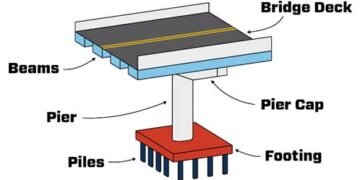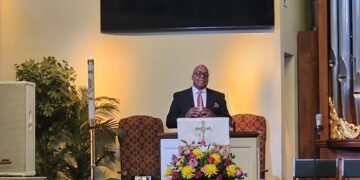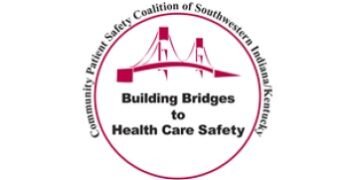State transportation and local officials are urging travelers to bring “a five-gallon bucket of patience” on April 8, the day when the total solar eclipse will pass over parts of western Kentucky, including Henderson.
Deneatra Henderson, the state Transportation Cabinet District 2 chief engineer, said an estimated 150,000 people are expected to come to watch the eclipse in western Kentucky towns.
Backups on roadways are expected, she said, urging visitors to stay late after the eclipse and do other activities so that gridlock may be eased.
She also said 1 million travelers are expected to use western Kentucky roadways as they go to and from eclipse viewing sites in the state and in bordering states.
Henderson advised travelers to:
- Keep road shoulders and medians clear so that emergency vehicles will have room to pass, if they are needed
- Pack snacks, fill you gas tank and bring a lot of water
- Be patient
Kenny Garrett, the director of the Henderson Office of Emergency Management, said emergency communications will be able to occur through CB radio if cell phone bandwidth is overloaded. He said an OEM command post will be set up at Denny’s on the U.S. 41-strip and numerous ambulances will be stationed around the county.
Garrett also said that U.S. Coast Guard and Kentucky Fish & Wildlife Department boats will be on the Ohio River.
Jill Ward, Henderson OEM director’s assistant, advised electric car drivers to reconsider using them on this day. There were reports of electric cars running out of power in the heavy traffic in western Kentucky following the 2017 eclipse, she said.
Ward said there was another report from the 2017 eclipse that it took a person four hours to travel three miles on Green Street.
Keith Todd, the district 1 public information officer for the state Transportation Cabinet, echoed traffic concerns, saying that a highway in Hart County had 220% more usage than normal and 30,000 vehicles traveled the Pennyrile Parkway—double its 15,000 average—after the 2017 eclipse.
Todd said cloud coverage in one area could cause travelers to move to a place where more visibility is predicted, which could cause even more movement on roadways.
Todd, like the others, urged patience.
“Bring a five-gallon bucket of patience because you’re going to need it,” he said.




















